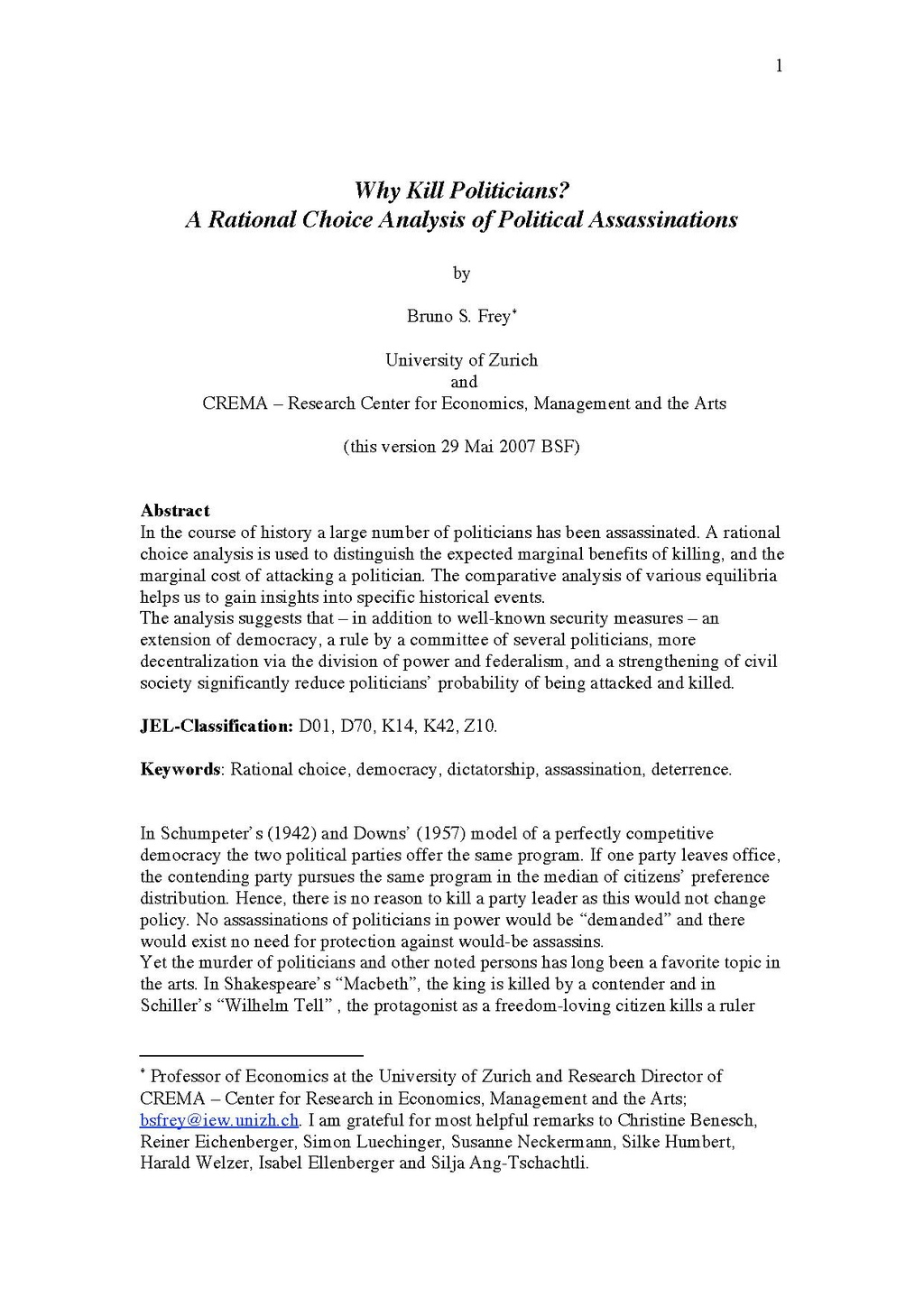Why Kill Politicians?
A Rational Choice Analysis of Political Assassinations by Bruno S. Frey(*)
University of Zurich and CREMA – Research Center for Economics, Management and the Arts
(this version 29 Mai 2007 BSF)
Abstract
In the course of history a large number of politicians has been assassinated.
A rational choice analysis is used to distinguish the expected marginal benefits of killing, and the marginal cost of attacking a politician.
The comparative analysis of various equilibria helps us to gain insights into specific historical events.
The analysis suggests that – in addition to well-known security measures - an extension of democracy, a rule by a committee of several politicians, more decentralization via the division of power and federalism, and a strengthening of civil society significantly reduce politicians' probability of being attacked and killed.
JEL-Classification: D01, D70, K14, K42, Z10.
Keywords: Rational choice, democracy, dictatorship, assassination, deterrence.
In Schumpeter's (1942) and Downs' (1957) model of a perfectly competitive democracy the two political parties offer the same program. If one party leaves office, the contending party pursues the same program in the median of citizens' preference distribution. Hence, there is no reason to kill a party leader as this would not change policy. No assassinations of politicians in power would be “demanded” and there would exist no need for protection against would-be assassins. Yet the murder of politicians and other noted persons has long been a favorite topic in the arts. In Shakespeare's “Macbeth”, the king is killed by a contender and in Schiller's “Wilhelm Tell” , the protagonist as a freedom-loving citizen kills a ruler
Professor of Economics at the University of Zurich and Research Director of CREMA – Center for Research in Economics, Management and the Arts; bsfrey@iew.unizh.ch. I am gratefUL for most helpfUL remarks to Christine Benesch, Reiner Eichenberger, Simon Luechinger, Susanne Neckermann, Silke Humbert, Harald Welzer, Isabel Ellenberger and Silja Ang-Tschachtli.
